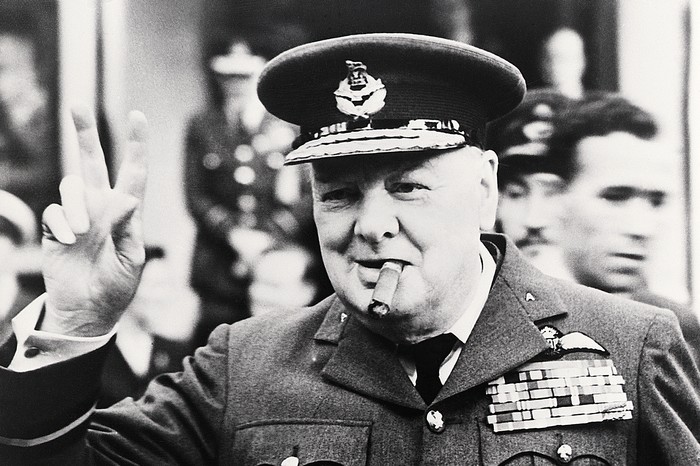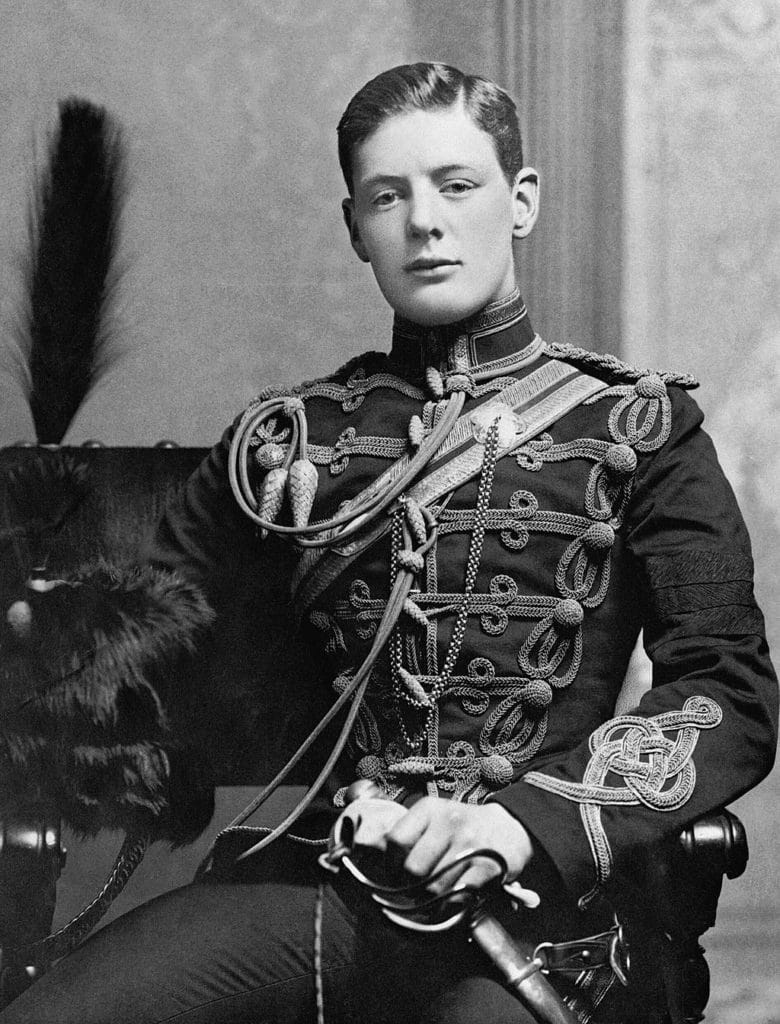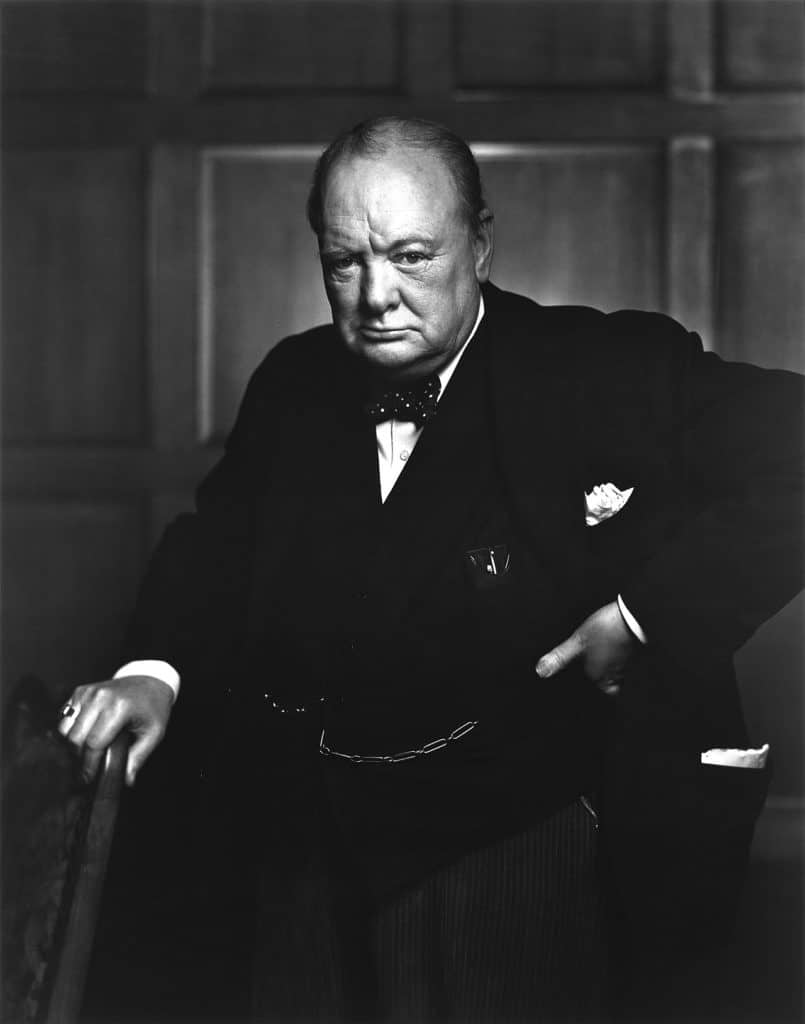Last updated on January 14th, 2023 at 06:33 pm
“We shall fight on the beaches, we shall fight on the landing grounds, we shall fight in the fields and in the streets, we shall fight in the hills. We shall never surrender!”
These are perhaps some of the most famous lines in warfare. In one of his most famous speeches, they were uttered by a defiant Prime Minister of Britain, Winston Churchill, in the House of Commons on the 4th of June 1940.
It galvanized British public sentiment to fight against Nazi Germany even as Hitler’s armies overrun France in the early summer of that year. The speech is famous, but many people are unaware that the man who uttered it was probably intoxicated when he wrote and delivered it.
Indeed, as we explore here, Winston Churchill was effectively a high-functioning alcoholic who spent his entire adult life with a drink close to hand.

Early Life of Winston Churchill
Winston Leonard Spencer Churchill was born in a wealthy, aristocratic family on the 30th of November 1874. Britain was at the height of its power and empire. As a result, individuals such as Churchill could carve out considerable careers overseas in the colonies, which Winston did, serving in Africa in the 1890s and 1900s before using this as a stepping stone to enter national politics back in England.
In 1910 he became the British Home Secretary and then the First Lord of the Admiralty. However, his political reputation was severely damaged in the latter position during the First World War, as Churchill championed the idea of Britain opening a front in the Straits of Gallipoli near Istanbul to try to crush the Ottoman Empire.

The Battle of Gallipoli turned into a disastrous campaign that cost the lives of hundreds of thousands of men, notably a huge contingent of Britain’s Australian and New Zealander allies.
Despite this, Churchill served in numerous roles in successive Conservative Party governments again in the 1920s, but with the rise to power of the Labour Party in 1929 in Britain, Churchill was cast into political oblivion throughout the 1930s.
In the early summer of 1940, as Britain was threatened with the possibility of conquest by Germany, Churchill returned from the wilderness and was appointed Prime Minister.
Many people believed his constant warnings about Hitler during the 1930s proved he was the best man to act as Britain’s wartime leader. They were not wrong about this, and nobody disputes the success of Churchill’s war leadership.
Churchill’s Drinking Habit
Although Churchill was a very accomplished man and war leader, he was an extremely heavy drinker throughout his life.
In the late 1890s, when he was just in his mid-twenties and operating in southern Africa during the Second Boer War there, he headed off to the front lines at one point with 36 bottles of wine, 18 bottles of scotch whiskey, and a half a dozen bottles of vintage brandy in his extensive luggage.
As he settled into his middle years, he had developed a routine as a politician in London whereby he would have a few whiskey and sodas in the morning, followed by an imperial pint of either champagne or wine with lunch.
A brandy followed shortly after lunch. Another pint of champagne was the preferred drink at dinner, followed by another brandy and sometimes some more brandy and soda at night.
Studies of Churchill’s intake have noted that while this is a heavy regimen of booze, the average individual’s body can process most of this over 24 hours.
The problem starts when one drinks a good deal on top of this regimen. There is evidence to suggest that during the so-called ‘Wilderness Years’ of his political life in the 1930s, that is what Churchill did.
It may have been exacerbated by what scholars believed was undiagnosed manic depression which he suffered from.
Drinking during WW2
The descent towards WW2 following the Munich Conference in the autumn of 1938 and the eventual outbreak of it in September 1939 gave Churchill a renewed sense of purpose. In the 1940s, their fresh discipline was introduced into his drinking habits.
Rumors, of course, abounded about Churchill being drunk in the war room in London while some of the most important decisions concerning the conflict were being made. Others suggested he was once removed drunk.
Yet, Churchill’s family members later claimed that for all his prodigious drinking, they never saw him intoxicated. Also, there are almost no substantiated stories about Britain’s wartime leader’s decisions affected by booze at any stage between 1940 and 1945.
Indeed, the legends about his drinking were created by Churchill himself, who liked to talk up his intake. The reality, however, was that Churchill was almost certainly very rarely incapacitated by alcohol.
On the contrary, he was effectively a high-functioning alcoholic. The large amount he drank daily was matched by the high tolerance that comes with imbibing roughly 30 units of alcohol per day throughout one’s adult life.
Thus, while it may seem peculiar to the sober world of the early twenty-first century, Churchill could perform his many political offices even while drinking pints of champagne for lunch.

Eventually, there were signs of an easing of Churchill’s habits in this regard. In 1953, as he neared the end of the seventies and when he was back serving as Prime Minister again in 10 Downing Street, he admitted that he had been making a concerted effort to cut back on how much he was drinking. He switched from tumblers of brandy to smaller aperitifs of Cointreau and other liqueurs.
Throughout this time, though, he continued to drink a bottle of champagne at lunch each day and sometimes a second in the evening. Perhaps this alleged scaling back of his imbibing was part of his eventual longevity, as Churchill lived to the ripe old age of 90 and only died on the 24th of January 1965.
In reality, however, Churchill survived through sheer luck and good medical care. Undoubtedly, he was effectively a functional alcoholic, one whose prodigious intake of booze did not dent his ability to work as a politician.

